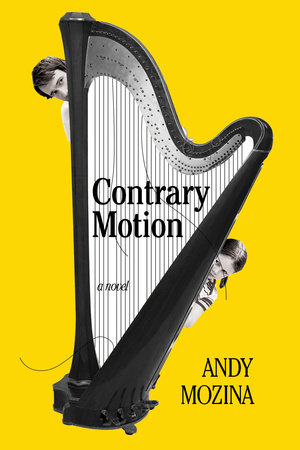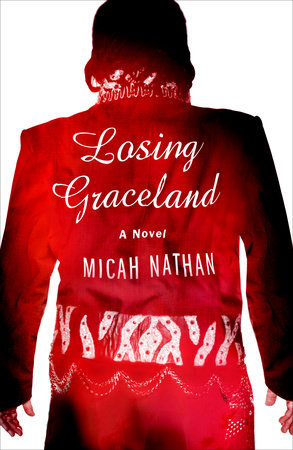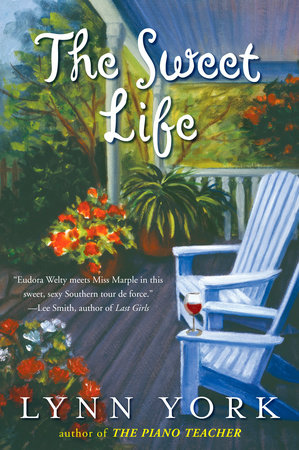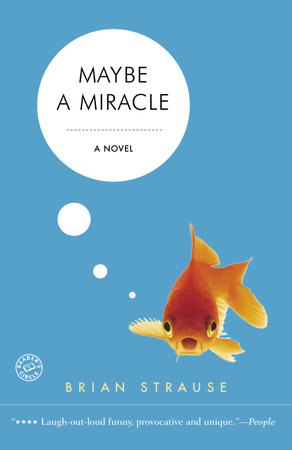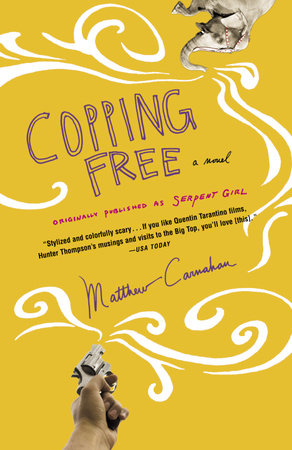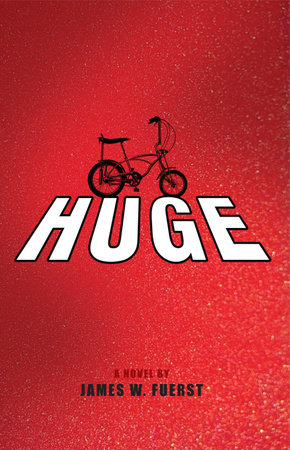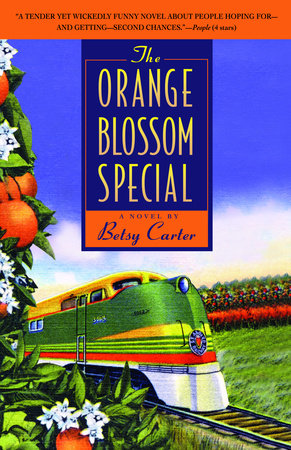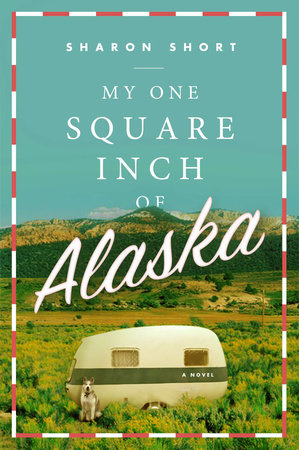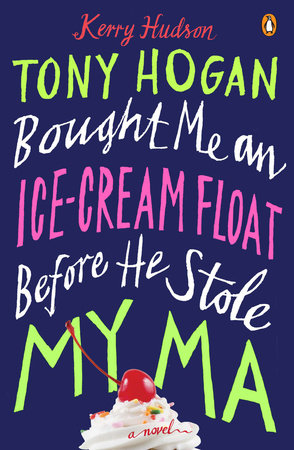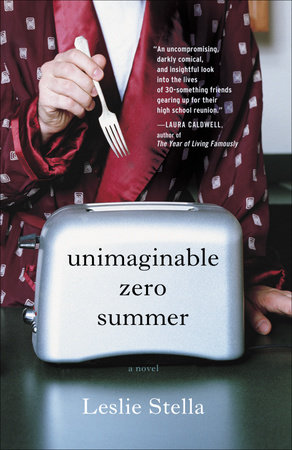Author Q&A
A Conversation with Monica Wood
Amy MacDonald has been a friend of Monica Wood’s for many years. She is the author of a dozen books for children, including Little Beaver and the Echo and the forthcoming No More Nasty. Her nonfiction has appeared in The New Yorker and other magazines.
AM: You were born in Mexico, Maine–a small mill town like Rita’s–but went to college out of state, unlike, I’d guess, a majority of your classmates. Why did you come back to Maine?
MW: My mother died during my last year in college, so I came back to be with my sisters. I guess I wasn’t ready to leave the nest. I did have plans to go back to Washington, D.C.–I was enrolled in a performing arts master’s program–but on the night before my scheduled departure I realized I didn’t want to go. I had my car packed to the seams, but something magical overtook me and I realized I did not belong anywhere else. I moved to Port-land with a friend, and I’ve been in Portland ever since.
AM: How does living in Maine affect your writing?
MW: My subject is family, not place, but sometimes the two are hard to separate. The setting for My Only Story is a paper-mill town, and although the fictional Alton is in Massachusetts instead of Maine, it draws heavily from the town I grew up in. The book I’m working on now, a collection of linked stories, is also set in a mill town, this one smack dab in the middle of Maine. The arc of my career strikes me sometimes as ass-backward, as Rita might say. Most writers begin with autobiographical material and work their way out of it. With each subsequent book I seem to be working my way back home. I’ve found that I need about ten or fifteen years between an event and the good writing of it.
AM: One reviewer said My Only Story was a paean to avuncular love. I think it’s even more than that. It’s about sibling love as well, a theme you come back to repeatedly and write about better than any other author I know. Why is this an important theme for you?
MW: I’m very close to my siblings, especially because we’re really all we have left. Our parents are gone, all our aunts and uncles, and even some of our cousins. I find sibling relationships endlessly fascinating. Your siblings are the ones who first show you who you’re going to be in the world. They’re the first people you fight with. Sibling love is ferocious, too. It’s a relationship you can’t escape: You can’t divorce your siblings. They’re the ones who knew you when, and sometimes that alone is enough to cover any slights or problems. When I meet somebody new I always ask, "Do you have any sisters or brothers?" And, "Are you close?" You get so many different answers. You get a sneak peek into their core.
AM: Was there an "uncle figure" in your life, on whom you based the character of John?
MW: I’m so glad you asked me that! I had a wonderful uncle, my mother’s baby brother, a Catholic priest, whom we called Father Bob. He adored children and probably would have had some if he’d chosen a different vocation; my sibs and I were his lucky surrogates. In my town, chumming around with a priest was as close as a body could get to being royalty. In those days, toll takers would wave us through, movies turned out to be free– all by virtue of the Roman collar. But he was more than just a grand time–our dad died when we were little, so he took on the father role. To this day I’m committed to being a good aunt, having learned from a master. What better way to honor his memory?
AM: Rita has so much loss in this story, yet she remains optimistic. How do you justify that optimism? What does she get from this journey? And do you share this optimism?
MW: Rita gets what anybody gets, who gives. Optimism is a funny thing; it’s something you’re either born with or you’re not. I was definitely born an optimist, and any losses I have suffered only strengthen my commitment to being happy. Pessimists, bless ’em all, take the opposite view: Loss, which is inevitable even in the luckiest life, serves only to prove their contention that life is a vale of tears. In other words, life’s unhappy burdens harden the original mold, one way or the other.
I have been amply blessed–with a delightful hus-band, first-class siblings, a raft of nieces and nephews, and many lifelong friends. But I have also, like everyone, experienced loss. So I always end up chronicling my characters’ relentless attempts to fill holes in their lives. The common human need to create, re-create, or supplement family infuses my work as it does my life. Like Rita’s, my optimism springs from grief–strange as this sounds. I believe this is true of many people, and I hope they recognize their own resilience in Rita. As long as we remain living, we have a chance to rectify our losses. Most of Rita’s words are hers, but when she says at the end of the book in a burst of hope, "Life is long, if we’re lucky," those words are mine.
AM: People assume: Your second novel, it must have been easier than the first. Is that true?
MW: I think it was Annie Dillard who said that the only thing you learn from writing a novel is how to write that novel. That’s so true! The one I’m working on is a big smudgy mess right now.
AM: That doesn’t dismay you?
MW: Maybe that’s the thing you learn, the only thing you learn, about writing novels–don’t panic. Something will come out of it eventually. It might take years, so you just have to steel yourself.
AM: What was harder about this novel?
MW: I spent four years, at least, writing it from Beth’s point of view, in the third person. Beth is such a good person, but she’s so predictably good and conventional that she was just plain boring. I hate to say it about her but she was. She was too dull to carry the book. It took me four years to figure this out, unfortunately. Rita has many of the same qualities, but she is a looser cannon and more fun to be with. The only downside is that after I decided to let Rita take a shot at writing it, she took only ten months. I had fun for only ten months after four years of misery.
AM: When and how did you realize it was Rita’s story?
MW: I think the moment was when Beth first opens the door to John and Rita, and Rita kind of clacks into the kitchen in her high heels–she’s much ruder in the Beth version– she clacks in, puts her coat down, and makes herself at home. The door is open, it’s freezing, and there’s this lit-eral breath of air coming into the novel. Rita didn’t have many scenes in that first version, but every time she did, the writing felt electric to me. I sent the draft to my agent, who said she couldn’t find the heart of the story. I put the thing away and cried for about a week. A month later I began hearing Rita’s voice. I thought, All right, I’ll let you take a crack at it. Once she started talking I couldn’t shut her up. I missed her terribly when I was done. I felt as if my best friend had just moved away.
AM: How did changing the point of view change the story?
MW: I threw away the whole book and started all over again from scratch.
AM: Were you tempted to give up on this novel?
MW: Only for a month. I’m like a dog with a rag in its teeth. I will not quit. I have stories that I’ve sent out twenty-five times, and I’m thinking, "One more revision and then it will be all right." I never give up on any material.
AM: But when you revise, you rewrite it utterly, don’t you? No looking at old drafts, no tinkering.
MW: I’m a ruthless reviser. Also there’s no paper trail when I revise. No drafts. Nothing. It’s just: Poof! Gone! I have a small writing space and I can’t stand clutter so I throw everything away. I’m the only writer I know who didn’t inherit a packrat gene.
AM: I find that terrifying.
MW: All my writer friends say that. It’s funny. But don’t you think it’s a tremendous act of faith? It’s like saying, "There’s more where that came from, baby!" There’ve been a couple of times when I thought, Damn, I wish I still had this scene or that line, it was so brilliant. But if those words suddenly reappeared I’d probably say, "Hunh. Never mind." So much for brilliance.
AM: Who was most responsible for forming you as a writer?
MW: My sister Anne, who was also my high school English teacher. When I was really little I would write her let-ters at college, and when she came home I would read my little stories to her. She scooched right down to lis-ten, looking me right in the eyes. I remember the first time that it dawned on me that writing was a giving and a receiving: She was kind of nodding and listening, and this thing turned in me. I realized what writing actually was: It wasn’t just writing some words and making up a story on paper, it was a communication process. I remember that so clearly. I was about five and a half, or six.
As a teacher, my sister was very old school, a real grammarian. Sentences had to make sense. They had to say exactly what you wanted them to say. She was a perfect teacher in that she would not suffer an inelegant sentence, but she also would never pass up an opportunity to give praise.
AM: What part of writing do you think can be taught, and what can’t?
MW: Technique can certainly be taught, which is why I like to teach beginners. I feel like the all-powerful one: Two hours with me and their writing improves tenfold–only because they can now identify things like point of view and story structure, very easy, teachable things.
What can’t be taught is how to be an empathetic human being. Empathy is a writer’s best tool. Not necessarily observation, although that’s useful. By empathy I mean the ability to imagine yourself as anyone–your first-grade teacher, a serial killer, a baby. You don’t say, "How would I feel in this situation, what would I do?" No. You say, "What is it like to be that person in that situation?" There is a fine difference. Now ask me if I have a cat.
AM: Monica, would you have any cats in your life?
MW: You know, Amy, it’s funny you ask me that, because the writer Rita Mae Brown wisely insists that a person can-not become a writer without a cat.
AM: Then it’s so lucky that you have one, and I have one, too. Why do you need a cat to be a writer?
MW: Because they will listen to your work without judging. Also, writing is lonely sometimes, so you need another being in your room. You wouldn’t want a human being in your room, that would be wrong and bad for your work. But having another being in the room, especially with all that fur, it just kind of warms up the place, emotionally and physically. And cats double as lap robes during these long Maine winters.
AM: Your writing doesn’t flinch from describing human failings and the crappy side of life, but it focuses on redemption, forgiveness, and second chances. Unlike much contemporary literature, it is neither edgy nor ironic. How does your fiction fit into the current literary scene?
MW: Fiction has tended to become more full-hearted in the last few years, especially in the short story: more filling and less "edge." Part of this trend is a backlash against the minimalist stories and novels of the eighties and early nineties, that kind of hip, edgier-than-thou urban stuff. I like reading edgy things about creepy people, but I prefer to read about people who have the capacity for forgiveness and redemption in their lives. I find them more interesting. They stay with me longer.
AM:You write about characters often overlooked by literature: ordinary people, not very glamorous, not very evil, not apt to take the world by storm, but who all bring a quiet dignity to the struggles of everyday life. Why?
MW: The short answer is, those are the people I like the best in my real life, so that’s who ends up in my fiction. I think it is a lot harder to write about people like Rita, who are truly decent, than about extremely evil or deeply flawed people. Rita has her flaws, but at heart she’s a good person, and I enjoyed the challenge of making her compelling.
Warning from the author: From this point on, we may discuss plot points, so if you are like me and like to read the author interview before delving into the book, please be aware that we might give away the story a little bit in the rest of our conversation.
AM: In My Only Story, you manage to portray very tender scenes between Rita and John without ever misleading the reader into thinking they are truly "in love." How did you do that?
MW: Well, they are both tender people. Tender and needy. It was that aspect of them that I concentrated on–and I love tender people, they’re so clueless, such walking tar-gets. So it was easy. There’s no trick to it.
AM: John’s not a typically heroic guy. Were you worried some readers might find him to be too passive, too "soft"?
MW: No! John has been so bludgeoned by life that I hoped readers would feel sympathy for him and see that he probably never was going to come out of this without somebody like Rita. I like John a lot. I completely forgive him for the choices he makes at the end. I think he’s a decent person–they are all decent people–to whom something awful happened, and like the rest of them John is making his way the best he can.
AM: You seem to have left a small door open for Layton. Does he have a future with Rita, or only a past?
MW: I did kind of leave a little door, just a crack, didn’t I? I guess Rita never really got over him. It’s a chemical thing. Layton is at one end of the continuum and John is at the other: Layton is a cad with bucketloads of sex ap-peal, and John has all those nice husbandly qualities but no pizzazz. The next guy–and there will be one–will fall somewhere in the middle. He’ll be the one.
AM: I’m sure your readers will be very happy to hear that.
MW: I have this fantasy about Rodney, the oil burner man: Something is going to happen to his wife, it will be really sad, and Rita’s going to help him through. She’ll end up with him and his kids.
AM: You read Tarot cards for yourself and friends, as Rita does in My Only Story. Do you ever use the cards to help you with your writing?
MW: I read Tarot cards for my fictional characters. I read Rita’s cards many times, whenever I got stuck. There’s nothing magical about the cards. They won’t show you something you don’t already know subconsciously, but occasionally they can save you some time. For example, I did Rita’s cards at one point, and the Knight of Swords kept showing up, galloping on a horse at full speed and waving his sword. (Swords represent challenges or problems in life.) At the same time the card of childhood kept showing up. I finally put two and two together and thought, Darla has to come back into this story but in a really swooping way. And she did. I’d have come to that decision eventually, but it might have taken six months and a few dead ends, because I never intended to have Darla be a big part of the book. The cards have a way of jogging little spaces in the unconscious that have been asleep too long.
AM: Any other similarities to Rita?
MW: Haircuts. I can cut hair. I cut my own hair for years. I used to do it in high school, for my friends, and all through college. You didn’t know that? I could cut your hair right now.
AM: That’s okay, really. Thanks. Well, here’s another similarity: Rita is obviously well read in the classics, such as The Canterbury Tales and Little Beaver and the Echo. I’ve forgotten now, who wrote that children’s book?
MW: That sweet little story about a beaver actually was written by a marvelous children’s author named Amy MacDon-ald who, when she’s not writing, can be found drinking coffee with me at Pat’s Meat Market on Stevens Avenue.
AM: I have to tell you, I fell out of my chair laughing when I read the reference to Little Beaver and the Echo in My Only Story, and I want to know, what can I do to repay you? I mean, aside from trying hard to make you look good in this interview?
MW: In your next book you can have a line that says "Fluffy the Bunny was nibbling on lettuce in Farmer John’s gar-den when he heard a funny sound. Looking up, he saw acclaimed novelist Monica Wood typing away on her next bestseller."
AM: Consider it done: Little Fluffy and the Collected Stories of Monica Wood, coming to a bookstore near you.



